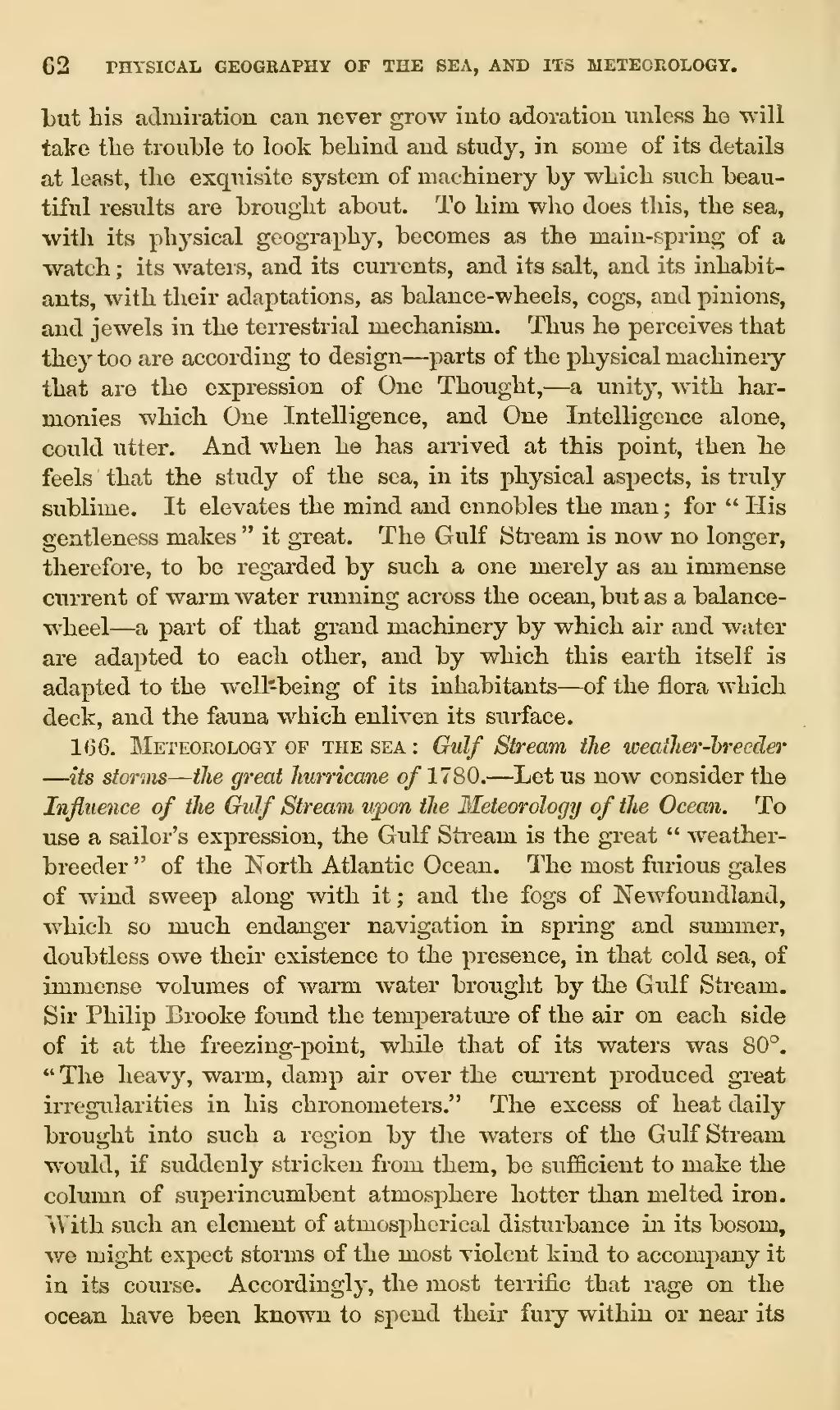but his admiration can never grow into adoration unless he will take the trouble to look behind and study, in some of its details at least, the exquisite system of machinery by which such beautiful results are brought about. To him who does this, the sea, with its physical geography, becomes as the main-spring of a watch; its wheels, and its currents, and its salt, and its inhabitants, with their adaptations, as balance-wheels, cogs, and pinions, and jewels in the terrestrial mechanism. Thus he perceives that they too are according to design—parts of the physical machinery that are the expression of One Thought,—a unity, with harmonies which One Intelligence, and One Intelligence alone, could utter. And when he has arrived at this point, then he feels that the study of the sea, in its physical aspects, is truly sublime. It elevates the mind and ennobles the man; for "His gentleness makes" it great. The Gulf Stream is now no longer, therefore, to be regarded by such a one merely as an immense current of warm water running across the ocean, but as a balance-wheel—a part of that grand machinery by which air and water are adapted to each other, and by which this earth itself is adapted to the well-being of its inhabitants— of the flora which deck, and the fauna which enliven its surface.
166. Meteorology of the sea: Gulf Stream the weather-breeder—its storms—the great hurricane of 1780.—Let us now consider the Influence of the Gulf Stream upon the Meteorology of the Ocean. To use a sailor's expression, the Gulf Stream is the great "weather-breeder" of the North Atlantic Ocean. The most furious gales of wind sweep along with it; and the fogs of Newfoundland, which so much endanger navigation in spring and summer, doubtless owe their existence to the presence, in that cold sea, of immense volumes of warm water brought by the Gulf Stream. Sir Philip Brooke found the temperature of the air on each side of it at the freezing-point, while that of its waters was 80°. "The heavy, warm, damp air over the current produced great irregularities in his chronometers." The excess of heat daily brought into such a region by the waters of the Gulf Stream would, if suddenly stricken from them, be sufficient to make the column of superincumbent atmosphere hotter than melted iron. With such an element of atmospherical disturbance in its bosom, we might expect storms of the most violent kind to accompany it in its course. Accordingly, the most terrific that rage on the ocean have been known to spend their fury within or near its
